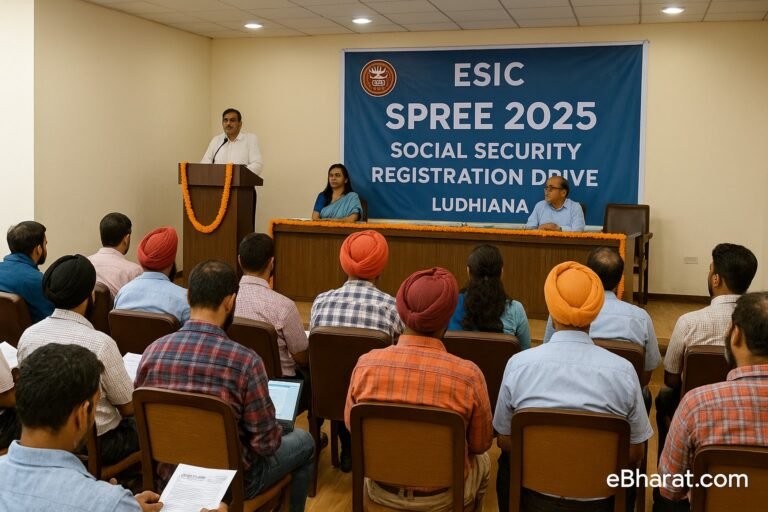
Buying health insurance for your elderly parents isn’t just a financial decision — it’s an emotional one.
You want to protect them, offer peace of mind, and avoid last-minute hospital expenses. But senior citizen health insurance in India isn’t always straightforward. From high premiums to claim restrictions, there’s a lot hidden in the fine print — and most families realize it only when it’s too late.
Let’s break down the key things to watch out for — and how to choose the right plan without falling for misleading offers.
1. Pre-Existing Illnesses Are Not Covered Right Away
Most elderly people have lifestyle diseases — like diabetes, high blood pressure, cholesterol, arthritis, or thyroid disorders.
But here’s the hard truth: these are not covered from Day 1.
Every senior citizen health policy comes with a waiting period of 2 to 4 years for pre-existing conditions. That means:
- If your father has BP today and is hospitalized for it next month, the claim may be denied.
- If your mother has arthritis and needs a knee replacement, she’ll need to wait until the clause expires.
📌 Pro tip: Choose a plan with the shortest waiting period — some offer just 12–24 months with extra premium.
2. Room Rent Limits Can Drastically Reduce Your Claim
Let’s say your policy has a room rent cap of ₹5,000/day, but the hospital room costs ₹7,000/day. What happens?
Insurers apply what’s called a “proportionate deduction.”
So even though only the room exceeded the limit, they may reduce every part of your bill — including doctor fees, tests, and medicines — by the same percentage.
Tip: Go for a policy with no room rent limits, especially if you’re insuring someone who may prefer private or semi-private rooms.
3. Co-Payment Clause: You Must Share a Part of Every Bill
Nearly every senior citizen health policy includes a co-payment clause. This means the insurer will pay only a part of the bill — and the rest must come from your pocket.
Typical co-pay ranges:
- 20% (for ages 60–70)
- 30% to 50% (for 75+)
Example: If the hospital bill is ₹2 lakh and your policy has a 30% co-pay, you will have to pay ₹60,000 yourself — even if the entire claim is approved.
📌 Look for: Policies with lower co-pay (some new plans offer just 10%) or waiver options with higher premiums.
4. Hospital Network May Be Small or Poorly Managed
Just because a policy claims cashless coverage doesn’t mean your local hospital will accept it.
Many senior-targeted policies (especially from newer or smaller insurers) have limited hospital tie-ups, especially in Tier-2 and Tier-3 cities.
Before buying:
- Check if your preferred hospital is in the active cashless network
- Ask about the TPA (third-party administrator) — slow TPAs cause claim delays
- Call the emergency helpline and see how responsive they are
This small check can save you hours of panic during real emergencies.
5. Medical Tests Are Usually Mandatory (And Not Always Free)
For applicants aged 60 or above, most insurers require basic medical tests before issuing a policy.
These usually include:
- Blood sugar, cholesterol, kidney/liver function
- ECG or TMT
- Urine routine
- Basic doctor evaluation
But here’s what most people don’t realize:
- You may have to pay for the test upfront
- Some insurers don’t reimburse even if the policy is issued
📌 Ask your agent or insurer clearly: “Will you cover the cost of these tests?”
Bonus: Other Fine Print That Can Affect Senior Claims
- Sub-limits on surgeries: Many plans cap expenses on procedures like cataract, hernia, or knee replacement.
- Daycare procedure confusion: Some older policies only cover 24-hour hospitalizations. New-age plans now include shorter treatments too — like dialysis or eye injections.
- Ambulance and pre/post-hospitalization cover: Always check how many days of expenses before and after hospitalization are reimbursed.
Real Example
Let’s say you bought a ₹5 lakh senior policy for your 68-year-old father. His BP was pre-existing. Six months later, he suffers a heart issue and is hospitalized.
- Claim denied: Due to 3-year waiting period on pre-existing conditions
- Room was ₹7,000/day: Policy capped it at ₹5,000, so the entire claim amount was reduced by 28%
- 30% co-pay: Even on the final approved amount, you had to pay a share
- Result: You ended up paying ₹75,000–₹1 lakh out of your own pocket despite having insurance
That’s why understanding the fine print matters more than the premium amount.
Final Checklist: How to Choose the Right Senior Health Plan
- Go for the shortest waiting period for pre-existing conditions
- Prefer no room rent caps or generous limits
- Look for low co-pay options, even if slightly costlier
- Confirm cashless tie-up with nearby hospitals
- Clarify who pays for medical tests at the time of buying
- Check for restoration benefits, annual health check-ups, and lifetime renewability
Final Word
Buying health insurance for senior citizens can be life-saving — both emotionally and financially.
But only if you pick the right plan with eyes wide open.
Don’t get misled by low premiums or brand names. Focus on real-world usability — will this plan actually help during hospitalization? Will it reduce your out-of-pocket burden?
Because when it comes to our parents’ health, fine print matters as much as the policy document.













